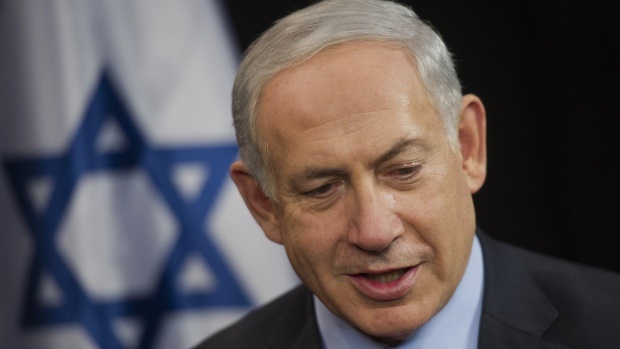Alwaght- Deep division inside the Israeli parliament over the enlistment of the ultra-Orthodox Jews has led the coalition leaders to dissolve the parliament and announce early elections. With the rise of new alliances and figures, the position of the incumbent Prime Minister Benjamin Netanyahu and his Likud party is driven into uncertainty. Each party is highlighting its own specific policies and slogans in a bid to knock out of the game the rivals. Such a spirited contest gives rise to questions about the course of political developments in the Israeli regime.
Netanyahu and Likud position
In the previous election, Netanyahu’s party allied with other parties to make a majority in the Knesset. But as the time went by, some of the high vote holders like Kulanu and Shas grew disappointed with Netanyahu policies and withdrew their support for Likud and the PM, leaving Netanyahu position severely damaged. In the inter-party contest, he faced major contenders. But at the end of the road, he made it to the top of the list. But now he has hard times building a coalition with other parties to join the race comfortably.
Contrary to the past, he now tries to ally with the right-wing parties.
Leaders of these parties have a long history of supporting violence against the Palestinians and expulsion of the Arabs from the occupied territories. For Netanyahu, the important thing is that partner parties do not demand the key and sensitive posts like the defense and foreign ministries. A priority for him is Likud’s upper hand in holding the key posts in the future government. This approach drew him criticism both at home and abroad, mainly in the US as the regime’s main foreign ally.
Rival coalitions
Education Minister Naftali Bennett and Justice Minister Ayelet Shaked broke with the right-wing party The Jewish Home party in late December and announced forming “New Right” party. The new party is against any deal with the Palestinians. The New Right is yet to garner popularity in Israeli politics.
On the other side of the competition, centrists announced a new alliance. Benny Gantz, a retired army general who formed Israel Resistance in December last year coalesced with Yair Lapid, the leader of Yash Atid party, to form Kachol Lavan coalition. They back limited PM terms and seek to end the Netanyahu’s decade-long rule. Moshe Ya’alon, the former army chief, also joined the alliance to use his popularity to strengthen chances of a win for the anti-Netanyahu front. The coalition is the newest rival to Netanyahu and his party. In the first verbal attack on Netanyahu, Lapid said that people need a leader who is not an everyday hit for the police investigations over corruption charges.
Election race course
In the previous coalition, The Jewish House with 7 seats and Shas with 8 seats played an effective role in Netanyahu’s majority win to form the cabinet. In these elections, due to the weak position of The Jewish House and the defections inside it, its votes were dispersed. Polls show that Likud party will very likely lose a portion of its votes. Shas represents a strong spot for the Likud. It is predicted to win over 7 seats but the two have been at odds since a couple of months ago.
Increasing popularity of the opposition beside Netanyahu's corruption case makes the upcoming election a tight race. Netanyahu is well aware of this fact and knows that a small mistake or an unpredicted issue can turn the tide to his rivals’ advantage. That is why he shortened his recent trip to Russia due to the significance of the court ruling in his political future.
He is likely to be convicted in the expected court verdict. He was questioned by police 12 times for his links to corruption cases. According to new polls, Kachol Lavan party will secure 35 Knesset seats and Likud will have 26 to 30 ones. This comes while earlier polls results showed that Likud will reap more seats than the opposition.
Political tendencies
The Arab parties of the Knesset ordinarily gain 11 to 13 seats in the elections. The liberal party of Hatnuah, led by the former Foreign Minister Tzipi Livni, has announced it will not join the race. The party ordinarily wins 11 seats which will be distributed between the rightist parties if it remains out. So, a severe competition will make for the attraction of the Hatnuah supporters. It is less likely that will vote for Netanyahu. They will likely not vote. If Livni's supporters vote, they will likely vote for Netanyahu's rivals, something hardening the situation for the PM.
Livni is a strong critic of Netanyahu's policies. Israeli politics to a large extent moved towards radicalization over the past few years. The moderate and liberal parties which support the two-state solution have largely lost their weight in the political scene. Kochal Lavan on the one hand shows tough stances on Iran and Syria and on the other hand paints itself as tolerant of the Palestinians. This duality is indicative of the party’s efforts to attract the hardliners and moderates at the same time.
Furthermore, Netanyahu is reliant to Likud prominence. He is personally on shaky ground. To get some personal political weight, he needs foreign policy achievement. His attempt is now to travel to an Arab country, probably Sudan or Mauritania, to use it as a play card in the elections.
Another effort is highlighting threats by enemies of Tel Aviv and claims of his successful and effective responses to them.
The atmosphere of the elections exhibits public disappointment with the parties’ policies. Split in The Jewish House or Hatnuah’s staying out of the contest show the lack of diversity in Israeli politics. The right-wing policies even compound this atmosphere. Livni predicts that such a situation will damage and weaken the regime from within.



























